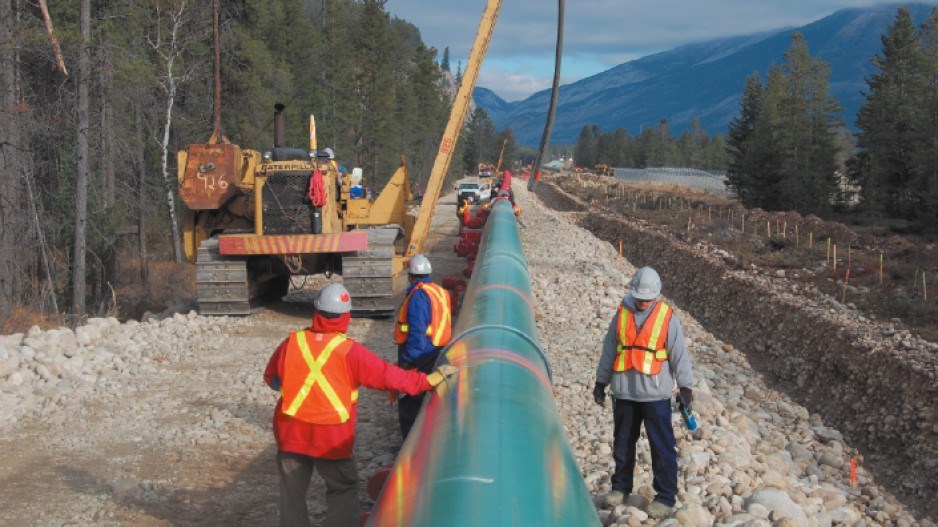The Province of British Columbia and the City of Vancouver have added their names to a growing list of interveners in the National Energy Board's (NEB) review of Kinder Morgan's proposed Trans Mountain pipeline expansion.
"As an intervener, we will be able to take an active role at the panel's hearings to ensure that we represent the interests of the people of B.C.," Environment Minister Mary Polak said in a statement.
"We are committed to ensuring that this project meets the highest standards of environmental protection and protects British Columbians from financial and environmental risk, if it does proceed."
The City of Vancouver filed for intervener status with the National Energy Board February 10, citing the its "significant concerns" about the impact of a seven-fold increase in oil tanker traffic and damage from a potential oil spill.
“The proposal to massively expand the amount of oil shipped through Burrard Inlet from Kinder Morgan represents all risk and no benefit for Vancouver,” said Mayor Gregor Robertson.
Gaining intervener status in the hearings allows for the submission of written evidence or oral presentations, as well as receiving documents filed from other interveners and Kinder Morgan.
Interveners in the NEB's review process include: Surrey, White Rock, Vancouver and Burnaby, among other communities located along the pipeline route.
Last year, Victoria released its five conditions for heavy oil pipeline projects in B.C. They are:
- Successful completion of the environmental review process.
- World-leading marine oil spill response, prevention and recovery systems for B.C.'s coastline and ocean to manage and mitigate the risks and costs of heavy-oil pipelines and shipments.
- World-leading practices for land oil spill prevention, response and recovery systems to manage and mitigate the risks and costs of heavy-oil pipelines.
- Legal requirements regarding aboriginal and treaty rights are addressed, and First Nations are provided with the opportunities, information and resources necessary to participate in and benefit from a heavy-oil project.
- British Columbia receives a fair share of the fiscal and economic benefits of a proposed heavy-oil project that reflects the level, degree and nature of the risk borne by the province, the environment and taxpayers.
"We have made it clear that B.C. will only consider supporting a heavy-oil pipeline proposal if it satisfies our five conditions," Polak added. "That applies to Kinder Morgan's Trans Mountain expansion project."
Kinder Morgan filed its formal application to the NEB last December. The company's application triggered the review process. Public hearings on the pipeline projects are expected to last 15 months.
Kinder Morgan is seeking to twin the Trans Mountain existing pipeline, which runs from north of Edmonton to the Westridge Terminals in Burnaby. The $5.4 billion expansion will increase the capacity of the pipeline to 890,000 barrels per day from 300,000.
If approved, the expanded pipeline could be in operation by late 2017.
With files from the Surrey Now




